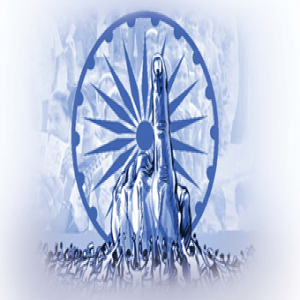
 Fr. Gaurav Nair
Fr. Gaurav Nair

The Bharatiya Janata Party's push for One Nation, One Election (ONOE) has again sparked doubts about the future of democracy in India. Despite recent setbacks in the Lok Sabha elections, the BJP is determined to implement this sweeping reform. The Union Cabinet recently approved the high-level committee report on this issue, led by former President Ram Nath Kovind.
At the heart of this proposal is the synchronisation of Lok Sabha, state assembly, and local body elections, which are currently held at different times. The Kovind committee claims that simultaneous polls will create more stability in governance and reduce the burden on public finances.
However, the BJP's motivation for pushing this agenda might run deeper than just administrative efficiency. The Party stands to gain from the simultaneous elections by leveraging its strong national presence. By consolidating elections, the BJP can streamline its campaign machinery and dominate both national and regional arenas.
India's political system is built on a federal foundation, where both the Union and the states enjoy considerable autonomy. State elections are dominated by local issues. Regional parties deeply rooted in their states address local concerns that national parties might overlook. Their relevance lies in connecting with voters on issues specific to their regions.
When voters are asked to choose their representatives for both the Lok Sabha and their state assembly simultaneously, they are more likely to be influenced by national rather than regional issues. This could lead to the dominance of national parties with resources to contest elections nationwide, and smaller regional parties could find their voices drowned out by the national cacophony.
The BJP's push for ONOE seems less about governance and more about consolidating its power. By aligning national and state elections, the BJP can capitalise on its minion network to win both national and state elections simultaneously. The Party would no longer need to worry about regional setbacks or coalition politics.
If the ONOE proposal is implemented, situations like the current opposition coalition, which managed to check the BJP's dominance in several state elections, might never arise again. The BJP would be able to conquer votes nationwide, using its vast resources and national appeal to drown out the voices of local parties. This could spell disaster for parties like the TDP, which has supported ONOE. While the TDP may see short-term benefits in aligning with the BJP on this issue, it should beware. The proposal it supports could eventually lead to its own marginalisation as the BJP tightens its grip on national and state-level politics.
The proposal for ONOE is not without merit, particularly in terms of cost savings and reducing election fatigue. However, the potential long-term consequences for India's democracy are far too significant to ignore. If regional parties are sidelined and local issues are drowned out by 'national' narratives, India's political system will become dangerously centralised. One Nation, One Election could ultimately become One Nation, One Party.